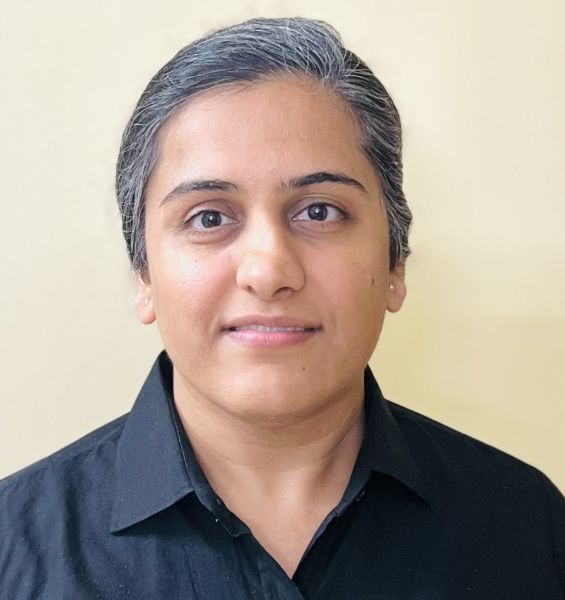Dilip Pungliya, Co-Founder And CBO At Ztudium, Shares His Vision For Digital Transformation And Smart City Innovations In Dinis Guarda YouTube Podcast

Categories :
Dinis Guarda interviews Dilip Pungliya, Co-Founder, VP, and Chief Business Officer at ztudium, in his YouTube Podcast. They discuss smart city innovations, and how integrating technology in processes and operations can ensure sustainability and efficiency. The podcast is powered by Businessabc.net and citiesabc.com.
Dilip Pungliya is the Co-Founder, Vice President, and Chief Business Officer at ztudium, a leading company in Web 3.0, AI, and blockchain innovations. With a strong background in transforming traditional businesses through technology, Dilip is a key figure in driving advancements in public infrastructure and smart cities.
During the interview, Dilip discusses his vision for integrating technology with public infrastructure and smart city innovations. The conversation covers how technology can enhance urban environments, the importance of sustainability, and how educational approaches impact technological advancement.
Dilip explains to Dinis about his vision for blending advanced technology with historical insights to shape the future of smart cities:
"In the domain of AI and artificial smart cities, I feel that if it is channelised in a humanised way it will be much more beneficial to society and professionals. That's how my research, with which I'm taking your help as well as more of industry leaders, explores how smart cities can be developed from an ecological, sustainability, or environmental point of view. How we can leverage AI so that cities become smart while giving other benefits, like smarter citizens who gain from smart infrastructure used in a proper and channelised manner.
One of my articles, 'Ancient Civilisation,' discusses how Mohenjo-Daro in the Indus Valley built civic structures and infrastructure, including the crisscross layout. Understanding why they developed such structures and how they could be utilised today can help us create more sustainable and effective cities for the future.
The key areas of my research involve using AI to develop smart cities in a way that benefits both people and the environment. Learning from historical examples, like the infrastructure of ancient civilisations, can guide us in creating modern cities that are both intelligent and sustainable. My passion for history drives me to explore how ancient urban planning and infrastructure can inform the development of smart cities today. By understanding and applying lessons from past civilisations, we can create more effective and sustainable urban environments for the future."
Dilip also shares how his family's business has evolved and has contributed to public infrastructure. Vishnu Prakash R. Punglia Limited (VPRPL) is a family-owned public construction company in India that has evolved from its modest beginnings into a major player in India’s infrastructure sector. Established with a focus on water irrigation, road infrastructure, and railway development, VPRPL has significantly impacted the construction industry in India.
Balancing business and social impact
Dilip Pungliya emphasises the importance of balancing business success with social impact. Despite a demanding schedule, he believes in dedicating time to community and social initiatives. He shares:
“"I don't want to be disconnected from society just because I don't have time; that's not a good excuse. You can always devote 1 hour or more to help society and bring social impact. I have been an entrepreneur in the past and today I am an investor. I have got full backing of my family from India and that investment is helping me to drive my passion towards business in technology, but the humanity part stays as well.”
Adapting to global education and community
Dilip reflects on his educational journey and experiences adapting to life in London. He describes the challenges of learning English and adjusting to a new educational system, as well as the enriching community experiences he's had in the city.
Dilip elaborates by saying, "When I started my education, it was in a regional language, but when I moved into engineering, everything switched to English. My first six months were tough, as I struggled to translate what I was learning English. There was little technology to assist, so we used pictures and dictionaries to bridge the gap.
Moving to London was challenging due to communication barriers, but I recognised the need to improve my vocabulary and pronunciation. Over time, I adapted and started building a community around me. Despite the difficulties, I found London to be a city where people from all ethnicities come together."
Dilip also highlights a key difference between the education systems in India and London:
“I discovered that London's education system is focused on nurturing natural abilities. Unlike in India, where the emphasis is on exam success, London's approach encourages students to develop their entrepreneurial skills and self-sustainability.
Dilip shares: “To young people, I would say that you don’t need to start with big dreams. Focus on small, manageable goals and take baby steps. Passion and persistence are key—keep moving forward and gradually, your small achievements will build up to realise your bigger dreams. It’s not about planning your future in 50-year chunks but setting goals for the next 2 or 6 months. Each success you achieve will pave the way for more success, and that’s the approach I’ve applied throughout my life and career.”

Pallavi Singal is the Vice President of Content at ztudium, where she leads innovative content strategies and oversees the development of high-impact editorial initiatives. With a strong background in digital media and a passion for storytelling, Pallavi plays a pivotal role in scaling the content operations for ztudium’s platforms, including Businessabc, Citiesabc, and IntelligentHQ, Wisdomia.ai, MStores, and many others. Her expertise spans content creation, SEO, and digital marketing, driving engagement and growth across multiple channels. Pallavi’s work is characterised by a keen insight into emerging trends in business, technologies like AI, blockchain, metaverse and others, and society, making her a trusted voice in the industry.









